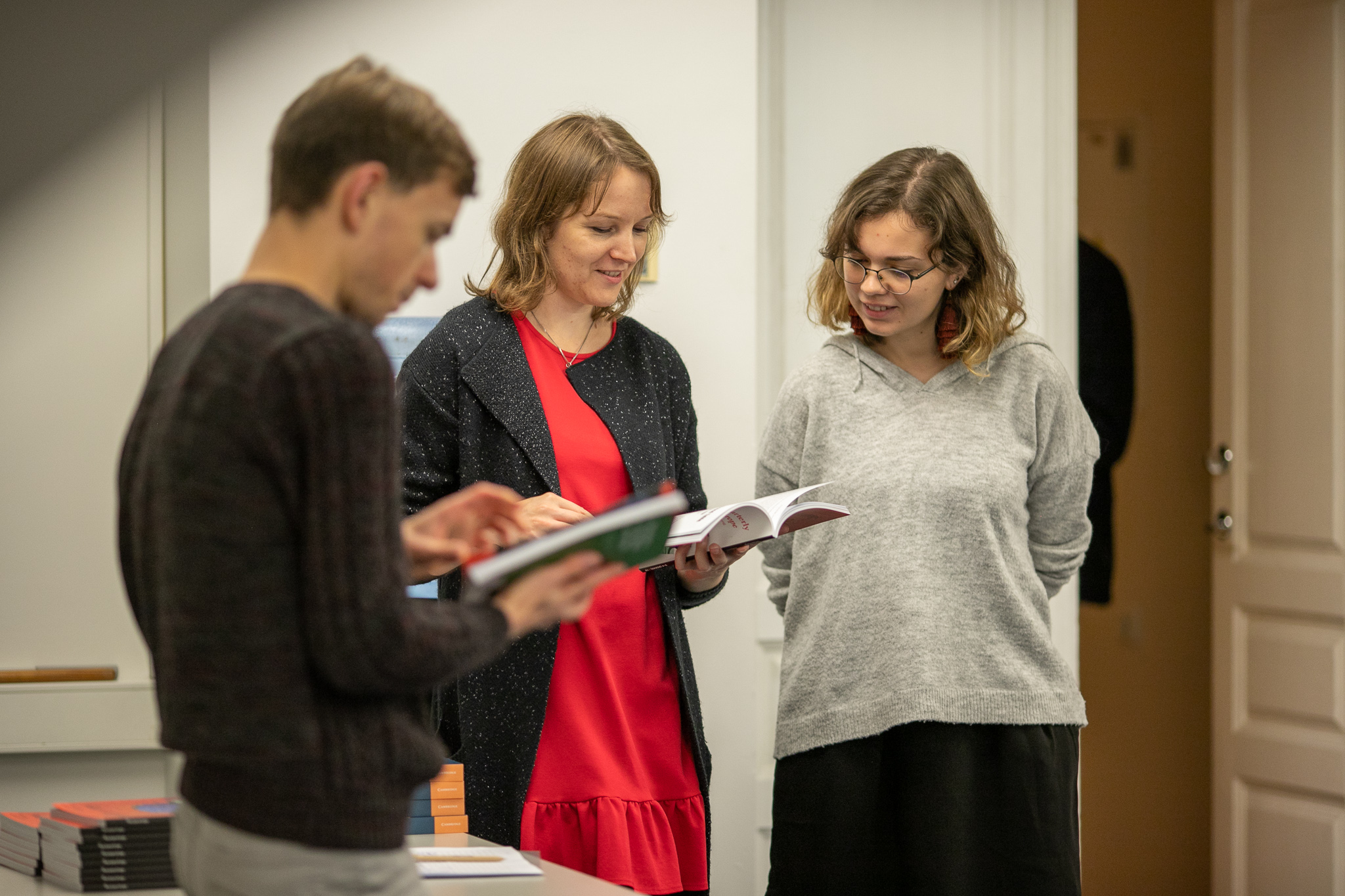
25 January 2020
The year 2019 marked the thirty-year anniversary of the fall of the Berlin Wall and a vital moment of democratic revolutions across Central and Eastern Europe (CEE). However, today the democratic order is facing new challenges: there are polarisation and fragmentation of the public sphere, new public protests and movements are emerging on the left and right. A unified Europe, which was an ideal across the region, became a divisive issue.
 With these new challenges, the project Rethinking the Democratic Future: Lessons from the Twentieth Century is aiming to rethink democracy, civic engagement and ideas of Europe from 1989 to 2019.
With these new challenges, the project Rethinking the Democratic Future: Lessons from the Twentieth Century is aiming to rethink democracy, civic engagement and ideas of Europe from 1989 to 2019.
The key aim of this project, implemented from October 2019 throughout March 2021, is to commemorate the legacy of the democratic revolutions in Central and Eastern Europe, by re-evaluating various forms of active citizenship, reflecting critically of their relevance to contemporary Europe, reimagining the forms for meaningful political involvement in the digital age.
 The project is implemented by the Open Lithuania Fund (OLF) in partnership with Res Publica Foundation and Jan Nowak-Jezioranski College of Eastern Europe with the financial support through Europe for Citizens Program.
The project is implemented by the Open Lithuania Fund (OLF) in partnership with Res Publica Foundation and Jan Nowak-Jezioranski College of Eastern Europe with the financial support through Europe for Citizens Program.
The launch event, Rethinking Europe: from 1989 to 2019, was organised in Vilnius, Lithuania on 11 November 2019 in conjunction with the thirtieth anniversary of the fall of Berlin Wall and the democratic revolutions in CEE.
In March 2021, a Visegrad Insight special report was launched with interviews, takeaways from consultations, a scenario and policy recommendations. Find out more about the special report here.
 Throughout 2020, online study visits were organised to Hungary, Latvia, Lithuania and Poland. They consisted of wide consultations with various stakeholders (NGOs, think-tanks, civil society groups, academics, participants of the democratic movements, 25 participants in each study tour) to experience and evaluate experiences on the state of memory about the democratic revolutions, their relevance for current political discourse, as well as contemplate the differences and similarities faces by active citizenship during the revolutions/transition. During this phase, we gathered critical reflections on the democratic revolutions and transition in CEE.
Throughout 2020, online study visits were organised to Hungary, Latvia, Lithuania and Poland. They consisted of wide consultations with various stakeholders (NGOs, think-tanks, civil society groups, academics, participants of the democratic movements, 25 participants in each study tour) to experience and evaluate experiences on the state of memory about the democratic revolutions, their relevance for current political discourse, as well as contemplate the differences and similarities faces by active citizenship during the revolutions/transition. During this phase, we gathered critical reflections on the democratic revolutions and transition in CEE.
Watch an overview of the consultations in Hungary:
In October 2020, an autumn school was organised in Poland for a group of highly motivated youth, interested in the historical heritage of democratic reform in the region, contemplating the past forms of active citizenships and the paths for civil engagement and resilience towards the manipulation of memory organised for 25 representatives from four to six countries.
Hear what the participants have to say about the autumn school:
An international conference will be organised in Vilnius, Lithuania in early 2021, reflecting on the past and contemplating the ways towards active citizenship today (it will include between 50 and 75 participants from 7 countries). In conjunction, an international workshop is being designed to reflect on democratic rule, active citizenship and political participation from the standpoint of political theory. A special session on youth is also being planned.
The European dimension is sustained through transnational learning and sharing of ideas on democratic rule and active citizenship in Europe. Through actualised and problematised reflections on revolutions in the region, the project will offer a valuable perspective on the democratic deficit and new ways for meaningful democratic participation.
On 19 October 2020, we organised an online debate on the subject of post-revolutionary reflections, asking whether a revolution is always followed by disappointment. Participants in the debate were Jogile Ulinskaite, Aleksejs Grigorievs, Maksimas Milta and Volodymyr Yermolenko. Watch the entire debate here:
On 26-28 April 2021, the project partners organized an online conference “Rethinking the Democratic Future: Lessons from the 20th Century”. Visegrad Insight contributed with the session “Media and Civil Society Renewal in CEE” that featured Thomas J. Kent, Hanna Liubakova and Ágnes Urbán. More information about the conference and Visegrad Insight session, as well as its recording, is here.
Simona Merkinaite is a Programme Coordinator at the Open Lithuania Foundation.
simona.merkinaite@olf.lt